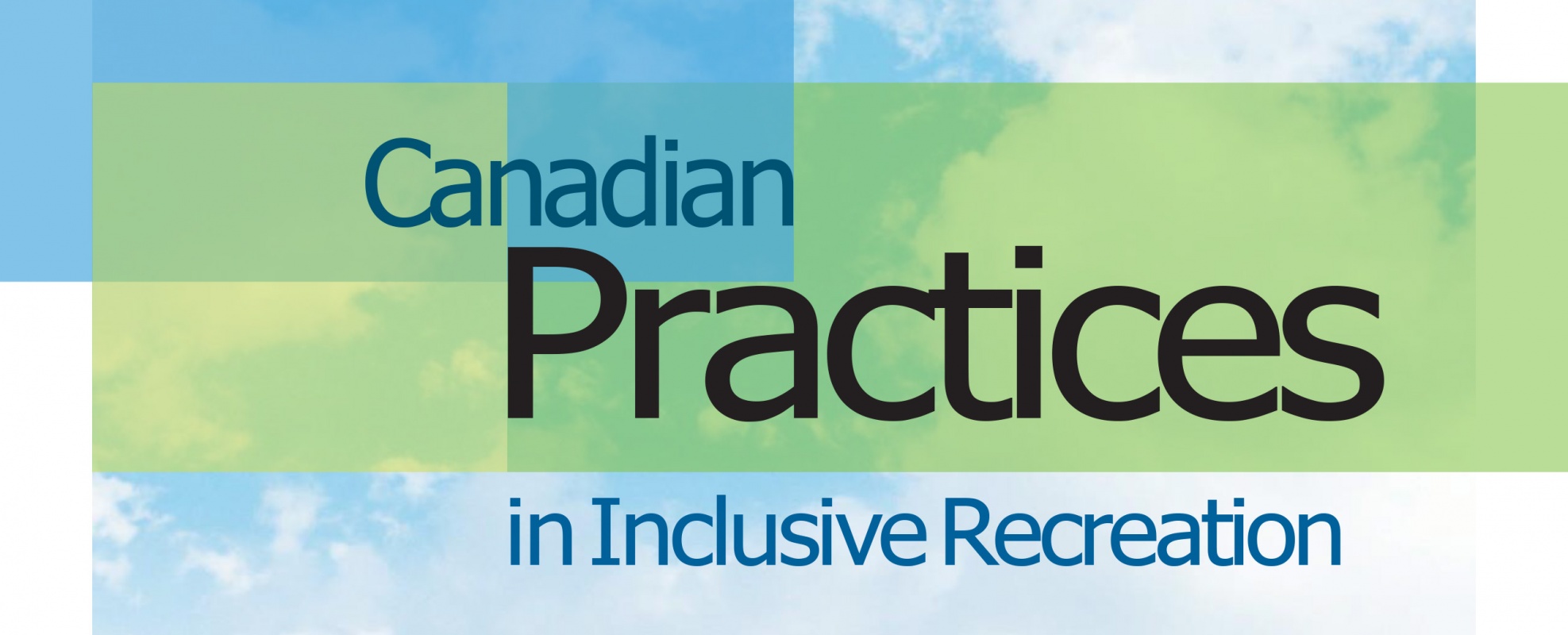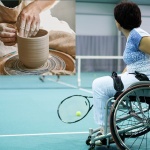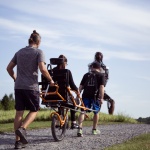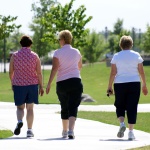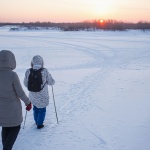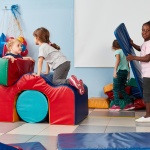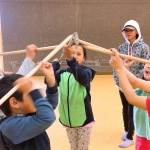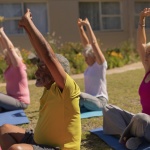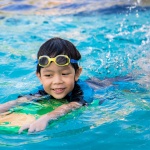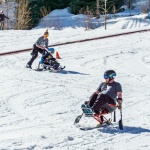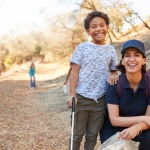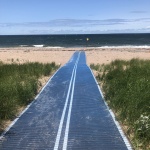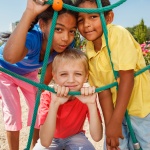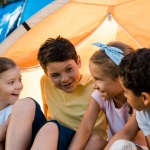Inclusion and Access for Canadians with Disabilities
ARPA actively supports inclusion and access for persons with disabilities in its education and training programs for members and stakeholders. Content and skill development in inclusion and access are a top priority in ARPA’s education and training initiatives, including the Annual ARPA Conference and Energize Workshop, Parks Forum, Leaders’ Summit, and Youth Development through a Recreation Services Symposium. The topics of inclusion and access are also included within other training offerings, such as courses and webinars, and are woven into the recreation and parks course for elected officials.
AQLPH works closely with the Québec Office for Persons with Disabilities (OPHQ or Office des personnes handicapées du Québec) which is a government agency that helps increase the social participation of people with disabilities through policies, research, and the development of resources and programs, such as Parcours sans obstacle and Carte accompagnement loisir (the recreation support card), which offers free access to programs and activity sites for caregivers and guides accompanying people with a disability.
AQLPH also works with the Ministry of Education and Higher Education, which is responsible for sports and recreation and is involved in a long-term mission to develop and disseminate tools and programs. Responsibility for the development and promotion of recreation opportunities for people with disabilities is also shared with the regional associations that work on the front line throughout the province.
AQLPH partners with Keroul, a Montreal-based not-for-profit organization internationally renowned for its work in promoting accessible tourism, and with the Défi sportif AlterGo, the largest accessible sports event in Canada with its 8,000 athletes. The recreation sector in Québec has a culture of working collaboratively on research, bringing together scientific partners from several universities in Québec. Promising leisure, accessibility and inclusion projects have spawned multiple tools and programs that meet the needs of the community.
BCRPA’s annual conferences feature content specific to inclusion and access, such as adaptive programming, welcoming people of different abilities, creating inclusive environments, and trends in building and equipment design to increase access for people with disabilities. The planning groups also consider the physical layout, taking into consideration physical inclusion, such as wheelchair access. As part of its annual conference, BCRPA will create a low stimulation area to showcase what is being done in municipalities that accommodates individuals who are challenged by noise and crowds. BCPRA also has a new website platform – Conversation Corner – where members seek and share examples of community successes and best practices in inclusion and access.
The NWTRPA is actively working to provide recreation leaders and community members with tools and strategies to create programs that are accessible and inclusive to all residents in the Northwest Territories. Access and inclusion have been a consistent theme at NWTRPA conferences in recent years. The NWTRPA and Youth Centres Conference is an annual professional development opportunity for recreation leaders, health care staff, students, youth, elders, youth centre staff, and volunteers from across the territory to explore trends and issues in recreation and receive training related to programming, leadership and facility management. The NWTRPA is also working with the Government of the Northwest Territories to implement the Northwest Territories Disabilities Framework.
In Ontario, there are programs designed specifically for individuals with a disability, but PRO also emphasizes the importance of programs that are inclusion-based, with individuals of all abilities welcome. Currently, children are the major focus of the delivery of programs for individuals with disabilities within the municipal recreation system. Inclusive services are offered widely across Ontario so that individuals with disabilities have the ability to join general recreation programs. PRO supports its members and other stakeholders by providing opportunities to share best practices and network with others offering inclusive programming.
RPAN’s programs (e.g., summer day camps, multi-sport camps, after-school programs) include staff training to ensure an inclusive environment is created for all children and youth. Through the current training and resources provided by RPAN, camp staff members are taught activities and games that highlight inclusion. Recreation staff are instructed on how to adapt games based on disability type, and different training techniques are adopted within the training to show staff how equipment can be modified based on an individual’s functioning and abilities.
RPAY supports inclusive opportunities through the Rural Healthy Eating Active Living (RHEAL) Leader and Winter Active for Life (WAFL) programs. These are designed to increase opportunities for physical activity and to increase equity for vulnerable and/or disadvantaged populations. They provide opportunities for physical activity that address barriers to participation.
The RHEAL Leader program provides opportunities for physical activity and promotes active lifestyles in Yukon communities. RHEAL Leader programs are welcoming, accessible, and inclusive and do not restrict participation because of cost, equipment needs, or transportation. Examples of this program include: Therapeutic Riding and Ground Work, Osteofit and Get Up & Go, Seniors’ Fitness and Restorative Yoga.
The Winter Active for Life (WAFL) program promotes, introduces and encourages Yukoners of all ages to be physically active outdoors during long winter months when patterns of inactivity are most prevalent. The program focuses on activities that require minimal infrastructure and can be done over the lifespan. For example, The WAFL Equipment Library offers Yukon communities cross-country ski equipment, snowshoes and kick sleds on loan to support opportunities to be winter active. RPAY works to promote and provide access to these programs with recognition given to the funder, the Yukon Government.
Every employee in the office of Recreation Manitoba is trained to comply with the Accessibility Standard for Customer Service as part of the Accessibility for Manitobans Act. Various conference sessions in Recreation Manitoba’s annual meeting are offered on the importance of accessibility and inclusion in programming and policies, including programming within therapeutic recreation and active aging.
Recreation NB has an Inclusive Recreation Committee that seeks to address the lower levels of physical activity participation observed among individuals with an intellectual disability, by breaking down barriers and connecting individuals to various recreation opportunities within the community. This Committee ensures staff and volunteers have adequate training to accommodate and work with individuals with disabilities within recreation programs and settings.
RNL has two inclusion advisory committees – Recreation NL Inclusion Advisory Committee and Recreation and Sport for Persons with a Disability Initiative. Staff work in partnership with provincial and federal governments on para sport and inclusive recreation, which enhances capacity and allows for a broader scope of practice overall.
RNL is extending its collaborations with the health promotion sector working with vulnerable people. The focus recently has been on public engagement about mental health and addictions.
The goal is to bring awareness and knowledge of disability into the mainstream, and to increase understanding that any of us at any time could be confronted with any range of disabilities, and that individuals should be included in recreation programming, regardless of ability.
RNS recognizes that inclusion and access must be the cornerstone from which to build recreation programs and service delivery. Programming for individuals with a disability starts with community advocates. RNS has an active Inclusion and Access Task Team, and has co-hosted a summit on access and inclusion, called “Confronting the Challenges to Access”. Additionally, community engagement sessions focused further on inclusion and access across the sector. Currently, RNS is developing a framework that explores the intersections that need to be understood when considering inclusion and access for persons with disabilities in particular.
Recreation PEI uses their website, newsletter, and social media platforms to act as an information hub for anyone interested in recreation and physical activity. The organization promotes opportunities for programs, resources, and training that are available, including information on inclusion. Recreation PEI shares available grant opportunities and often partners directly on applications with dedicated community partners (e.g., Eastern Region Sport and Recreation Council).
In addition to incorporating sessions and keynotes into their Annual Conferences, SPRA is responsible for the allocation and monitoring of approximately $2.5 million dollars annually in grant funding support, generated through Saskatchewan Lotteries, to 33 Provincial Recreation Associations. The following organizations have identified inclusion and access as an integral part of their mandate: Saskatchewan Abilities Council (highlighted below), Inclusion Saskatchewan, Saskatchewan Seniors Mechanism, Boys and Girls Clubs, Saskatchewan Divisions of the Canadian Mental Health Association, Canadian National Institute for the Blind, Canadian Red Cross Society, Girl Guides of Canada, and Scouts Canada. SPRA has also recently created a staff position responsible for the identification, development and coordination of programs and strategies that encourage inclusion and access to recreation.





